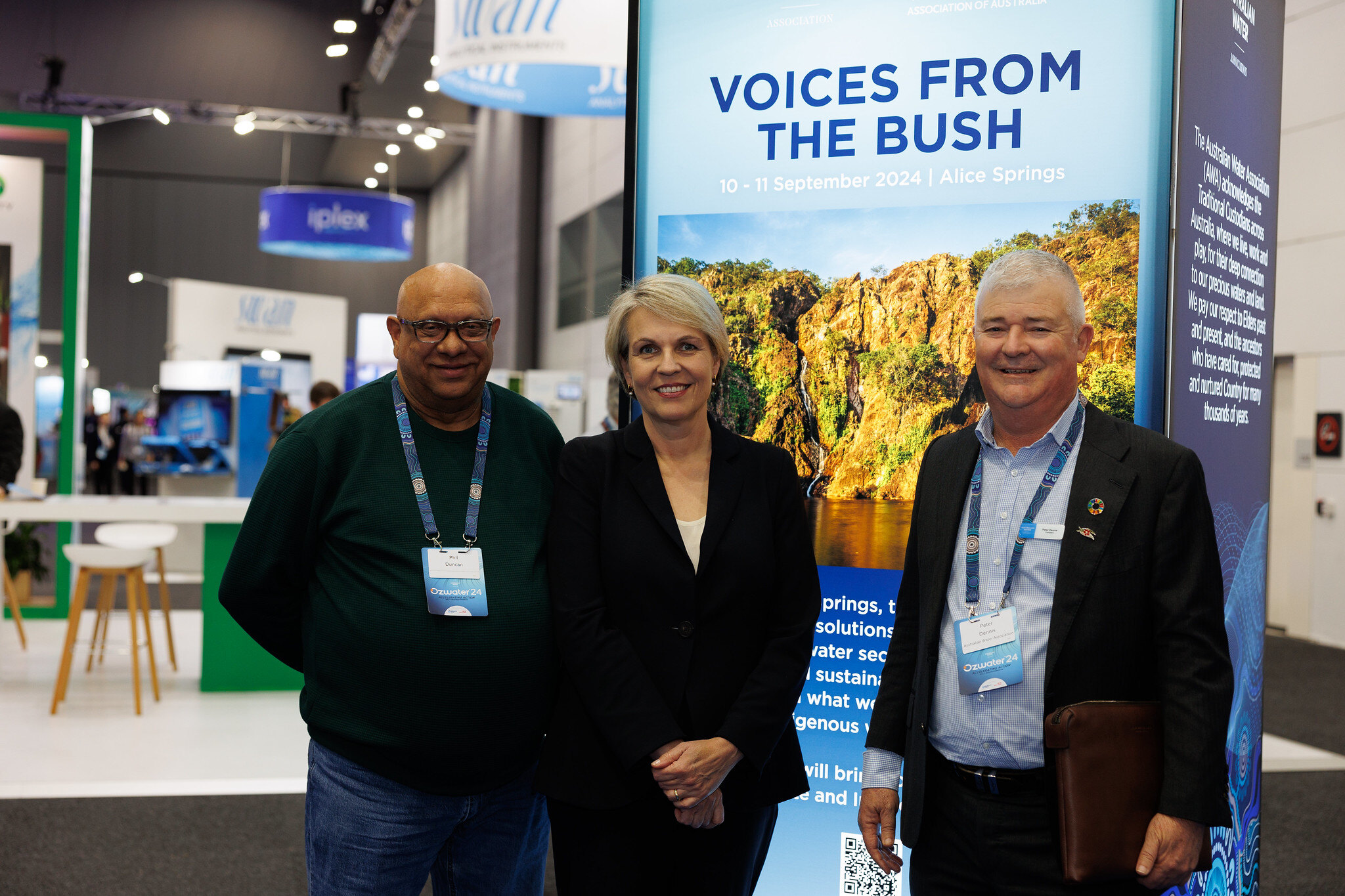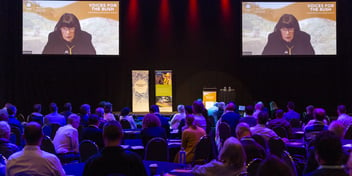Now more than ever: staying focused on reconciliation

When it comes to working towards reconciliation, it has never been more important for water professionals, organisations and agencies to showcase their commitment to walking and talking together with Indigenous peoples to create sustainable solutions for all.
This is the message from the 2024 Australian Water Professional of the Year and University of Canberra Galambany Professorial Fellow, Professor Phil Duncan, a proud Gomeroi man and Traditional Owner of the Terry Hie Hie lands.
Also a Director on the Board of Reconciliation Australia, Duncan said the theme of this year’s National Reconciliation Week – Now More Than Ever – is a direct reflection on the result of the 2023 Voice to Parliament referendum, and a call to stay focused and look forward.
“I am profoundly grateful for being appointed to Reconciliation Australia’s Board to work with CEO Karen Mundine, and the wonderful team of people who come from different walks of life, all with the tenacity to stay focused. It’s an honour and a privilege to work with them,” he said.
“Now More Than Ever is a very purposeful reflection of the failed referendum. But I want people to understand that if we look in the rear-view mirror, what we are going to see is the past.
“Now more than ever, we need to seize the moment, and to keep moving forward. Out of the referendum we realised that there are 6.5 million Australians that want us to be successful and want us to take our rightful place at the table.
“And now more than ever, we need to show the world how we walk and talk together. We need to share the load, share the journey, and make the differences that will result in positive and sustainable outcomes for Indigenous Australia.”
Duncan said the potential for reconciliation can only be realised if there is continued support for organisations, governments and community groups that are a part of the Reconciliation Action Plan network, and continued effort from network members towards meeting their commitments.
“Now more than ever, let’s seize the opportunity to show people that we can overcome anything by supporting one another, caring for one another, and look at the future through the eyes of our next generations. That is where the future lies for us,” he said.
“We must leave them a platform with a foundation of inclusion, integrity, respect and empowerment. All our young people are in this together, too. It’s our responsibility to leave a legacy of strength and togetherness.
“Let’s show the world that we can overcome anything together.”
Deep attention
In moving forward together, Duncan said continued support and guidance from Indigenous leaders needs to be maintained, as well as ensuring inclusivity and two-way learning.
“We need to maintain a deep and unwavering focus on integrating Indigenous leadership into supporting the water community, and the many institutions and companies that are members of the AWA network of networks,” he said.
“Being involved in decision making will also empower communities. But this has to be gender balanced – we are a matriarchal society, and whatever we do together must be based on the innovative power of inclusion.
“Solutions must also include two-way knowledge exchanges, where we are walking and talking together. We also need to maintain focus on the inclusion of young people within our network of networks because they are the ones that will be integrated into management positions in future.”
Reflecting on the 2024 Regional Infrastructure Project Innovation Award winning project – Laramba Water Treatment Plant: Improving the Health of a Remote Community (Power and Water Corporation and Clean TeQ Water) – Duncan said the project presents an excellent model for the border water community to learn from.
“One of the key successes for Laramba was the investment. Time and effort was put into building the capacity of the local community to manage the infrastructure,” he said.
“The community now own and maintain that infrastructure, but they also always have the support of the project team.
“The project looked closely at the best type of infrastructure appropriate for the climate, the cultural landscape, so that the solution isn’t just resilient, but also sustainable and able to be managed sustainably.
“It’s a model that we should be moving forward on. It’s all about empowerment through investing in capability. And when you consider the exorbitant cost of fly-in, fly-out engineers, it’s a smart investment, as well.”
Legacy of strength
Building a legacy of strength and togetherness to leave for the next generation, one that’s founded on inclusion, integrity, respect and empowerment, requires us all to come together, but also to be courageous, Duncan said.
“It’s about us all sitting together at the same table, respecting the safe environment we make together, so we can have courageous conversations that create our vision for a pathway forward together. We really do need to be courageous and vulnerable,” he said.
“The deep desire I have is for our members to come with a wondering mind. Leave your preconceived positions at the door. It’s okay not to know everything, it’s okay to ask for guidance from the people who live in their homelands, on their Country.
“It's okay to be vulnerable about not knowing. That’s the only way we can ever come to understanding, by starting with a wondering mind. Sit with the knowledge holders, sit with the leaders, sit with the men and the women and the youth. Ask them to tell you how we can be better together.”
Ducan said creating culturally safe environments is key to succeeding in the work of togetherness, both for Indigenous people and non-Indigenous people.
“I know that there are non-Aboriginal people who have an insatiable appetite to be the best champion they can be with and for Indigenous Australians, but they are scared of asking the wrong questions, or of saying the wrong thing,” he said.
“We need to create environments where we can just talk without being judgemental, where we can ask questions, big and small. Nothing works if we are isolated from one another. We can’t do that anymore.
“We have to have Indigenous people sitting at the table with all the other stakeholders. If we are all culturally safe, then there is a huge amount of respect, there is a solid relationship, and there is a genuine desire to move forward together.
“Now more than ever, we need to be loud and proud as an AWA network of networks, to show everyone how we operate together with respect and integrity, and prove that we intend to continue operating that way moving forward.
“And so, to our AWA family: you’ve gotta stay brave and courageous.
“Don't take your eyes off the vision you have for stronger inclusion, better relationships and partnerships, where we all make a difference together – now more than ever, seize this opportunity.”


